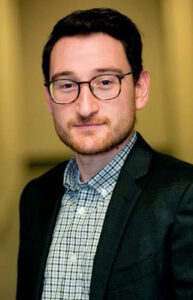Cognitive Processing Therapy (CPT) for Post-Traumatic Stress Disorder (PTSD) Training
Atlas is offering training on Cognitive Processing Therapy (CPT), an evidence-based treatment for Post-Traumatic Stress Disorder (PTSD), to licensed/registered Canadian service providers (and their trainees) working in mental health who care for Veterans or Veteran Families. The cost for this training is being covered by the Atlas and will be offered at no cost to eligible participants selected for the training (see details in Training Fees).
This training includes access to the virtual workshop, as well as the post-workshop group consultations.
Workshop capacity is limited to 150 spots. And, to support fidelity, Atlas is also offering access to group consultations, for a limited number of interested participants.
Applications closed at 8pm (ET) on Thursday, January 20th, 2022
All applicants will be notified of acceptance by no later than Friday, January 28th, 2022. Please do not make scheduling or other arrangements until your application has been accepted.
About CPT
Cognitive Processing Therapy (CPT) is a recommended first-line therapy in current treatment guidelines world-wide. There are 4 primary targets in CPT: 1) psychoeducation about PTSD from a cognitive perspective; 2) cognitive-behavioural self-monitoring; 3) cognitive interventions specific to trauma appraisals; 4) cognitive interventions aimed at overgeneralized beliefs emanating from traumatization. For information about CPT, please visit CPT for PTSD website.
Atlas has also prepared a resource for Veterans and Veteran Families wanting to learn more about options for therapy, including CPT, and what they can expect during treatment.
Training Fees
Atlas is offering the CPT for PTSD workshop and post-workshop group consultations at no cost to participants (subject to eligibility). There are limited spaces available and we ask that you please submit an online application (the link to access the application and instructions are detailed below).
While we are covering the cost of the training, you are strongly encouraged to purchase and read the newest version of the CPT manual prior to the workshop, available at Guilford Press.
Cognitive Processing Therapy for PTSD: A Comprehensive Manual
By Patricia A. Resick, Candice M. Monson, and Kathleen M. Chard
ISBN 9781462528646
Workshop
This workshop serves as a foundational training in CPT, highlighting the most recent research and changes in the protocol with the recent publication of the comprehensive manual (Resick, Monson, & Chard, 2017).
Participants will receive instruction in the theoretical underpinnings of CPT to facilitate individual case conceptualization, session-by-session review of the protocol, demonstrations with video-recorded materials from actual cases, personal experience with the therapy materials through role-plays, and discussion of common problems encountered. This is the official CPT workshop that can lead to CPT Provider status and will be led by CPT experts Drs. Candice Monson and Philippe Shnaider.
If you are selected to participate, you can expect to attend 4 half-days of training for 3 hours and 15 minutes, with one 15-minute, break each day.
Dates: Monday, February 28th to Thursday, March 3rd, 2022
Time: 12:00 p.m. to 3:15 p.m. (ET)
Delivery: Virtual, 4 half-days workshop
Language: English
Note that the Atlas is currently looking into training opportunities available in French.
In this workshop, you can expect to learn:
- The theory underlying CPT
- The evidence base that supports the use of CPT in treating PTSD and its common comorbidities
- Recommended assessment strategies to determine clients appropriate for CPT and to monitor outcomes
- The session-by-session CPT protocol
- Common challenges to implementing CPT (e.g., client adherence, managing comorbidities) and strategies for overcoming them
This workshop will be delivered over a secure, Zoom for healthcare, video conferencing platform. You will be sent an invitation with instructions prior to the workshop.
To participate, please ensure that you have a stable internet connection – broadband wired or wireless (3G or 4G/LTE), speakers and microphone (built-in or USB plug-in or wireless Bluetooth). To ensure connectivity, please ensure your Zoom App is up-to-date. If you have an older version of Zoom it may not be compatible with the conference call. You can download the latest version here.
The workshop will have a maximum capacity of 150 participants.
Candice Monson, PhD, is approved by the Canadian Psychological Association (CPA) to offer Continuing Education credits to Canadian psychologists. For other licensed professionals, please check with your licensing board to determine acceptability of CPA CE credits for this learning activity.
This program offers 12 contact hours in total (3 per day) with full attendance. Partial CE credit is not offered. Participants will be eligible to receive CEs upon successfully completing an online post-training survey/knowledge evaluation.
This workshop meets the requirements towards CPT Provider status. For more information about achieving CPT Provider status, please visit the CPT for PTSD website.
Agenda for Days 1 & 2:
- Symptoms of PTSD and the theory underlying CPT
- Research outcomes from CPT treatment trials
- Overview of CPT manual and forms
- Pre-treatment issues, recommended assessment measures, and structuring sessions
- Review of sessions 1-3
Agenda for Days 3 & 4:
- Review of sessions 4-12
- CPT with Written Accounts
- Common challenges and strategies for overcoming
Post-Workshop Group Consultations
After completing the workshop, you will have the opportunity to join a group for consultation on the use of CPT. Consultation is a very important part of becoming a rostered CPT Provider. As clinicians begin to deliver CPT in their practice, it is inevitable that questions and situations will arise with which clinicians new to CPT will need assistance to navigate. Consultation provides clinicians with support from expert CPT Consultants to get clinical questions answered and receive support and feedback to help ensure that clinicians are confident and competent delivering CPT.
Group consultations will take place weekly via the Zoom for healthcare platform and each consultation session is led by a CPT Consultant. CPT consultants are licensed mental health clinicians who have trained as a CPT Trainer and have extensive experience in the delivery of CPT.
Group CPT Consultation Structure:
- Size (number of service providers): 8 maximum
- Number of Sessions Offered: 20
- Session Duration: 60 minutes
- Frequency of sessions: Weekly
- Delivery Method: Online via Zoom for healthcare platform
- Language: English
Group 1
- Day: Mondays
- Time: 9:00 a.m. to 10:00 a.m. (ET)
- Start: March 28, 2022*
Group 2
- Day: Mondays
- Time: 10:00 a.m. to 11:00 a.m. (ET)
- Start: March 28, 2022*
Group 3
- Day: Mondays
- Time: 11:00 a.m. to 12:00 p.m. (ET)
- Start: March 28, 2022*
Group 4
- Day: Tuesdays
- Time: 3:00 p.m. to 4 p.m. (ET)
- Start: March 22, 2022
Group 5
- Day: Wednesdays
- Time: 10:00 a.m. to 11:00 a.m. (ET)
- Start: March 23, 2022
Group 6
- Day: Thursdays
- Time: 12:00 p.m. to 1 p.m. (ET)
- Start: March 24, 2022
Group 7
- Day: Fridays
- Time: 1:00 p.m. to 2 p.m. (ET)
- Start: March 25, 2022
Group 8
- Day: Fridays
- Time: 2:00 p.m. to 3:00 p.m. (ET)
- Start: March 25, 2022
* Please note that the start dates for Groups 1, 2 and 3 have been updated. The original start date provided was March 21, 2022. The new start date is March 28, 2022.
Included with Group CPT Consultation is:
- Assignment of an approved CPT Consultant
- Initial coordination of consultant and clinician(s)
- Up to 60 minutes of live consultation each week
- Administration of consultation documentation
- Documentation processing and updates to clinician status as outlined on the Achieving Provider Status
Group consultations will take place weekly over the Zoom for healthcare video conferencing platform. You will be sent an invitation with instructions specific to your group prior to the first session.
We are currently offering several groups with a maximum of 8 participants per group. You must first complete the training workshop to participate in group consultations. There are limited spaces in the group consultations. If you participate in the workshop, you are not guaranteed a spot in the group consultations.
Group consultation contributes to achieving CPT Provider status. A requirement of group consultation is that you must attend a minimum of 15 consultation sessions. For more information about achieving CPT Provider status, please visit the CPT for PTSD website.
Treatment developers, Drs. Resick, Chard, and Monson, hold a roster of clinicians who have completed training and consultation requirements to become a CPT Provider or CPT Quality Provider. Being listed on the roster will increase your visibility and credibility to clients and fellow clinicians who are seeking a CPT provider.
About the Trainers
PhD, CPsych
Professor of Psychology
Ryerson University

Dr. Monson is one of the foremost experts on traumatic stress and the use of individual and conjoint therapies for PTSD. Dr. Monson has received numerous awards for her clinical, teaching, and research contributions, including Fellow status in the Canadian and American Psychological Associations and Association of Behavioral and Cognitive Therapies, and induction into the Royal Society of Canada. Dr. Monson has co-authored 7 books, including the treatment manuals Cognitive Processing Therapy: A Comprehensive Manual and Cognitive-Behavioral Conjoint Therapy for PTSD. Dr. Monson is well-known for her clinical training and dissemination efforts.
PhD, CPsych
Clinical Psychologist, Private Practice
Assistant Professor, Department of Psychiatry and Behavioural Neurosciences
McMaster University

Dr. Philippe Shnaider previously managed and worked as a Psychologist at the Anxiety Treatment and Research Clinic at St. Joseph’s Healthcare Hamilton. He is the co-author of Treating PTSD with Cognitive-Behavioral Therapies: Interventions That Work, and has published several peer reviewed publications and book chapters. His research focuses on examining individual, couple, and group cognitive behavioural therapies for anxiety- and trauma-related disorders. Dr. Shnaider is actively involved in efforts to train clinicians in evidence-based interventions for PTSD.
Target Audience
This training is intended for licensed/registered Canadian service providers working in mental health who care for Veterans or Veteran Families. Trainees working under a licensed/registered Canadian service provider are also eligible to apply.
To be eligible for the free CPT for PTSD workshop and group consultations, you must:
- Be a licensed/registered service provider or a trainee under a licensed/registered service provider working in mental health. For example, a counsellor, marriage & family therapist, nurse practitioner, occupational therapist, physician, psychiatrist, psychologist, psychotherapist, registered nurse, registered psychiatric nurse, social worker, or related fields. If you do not see yourself in this list, please contact us to see if you’re eligible.
- Be currently living and providing care in Canada.
- Provide care to Veterans or Veteran Families. This is inclusive of Veterans from the Canadian Armed Forces and former RCMP members.
- Be able to participate in the workshop and group consultations in English.
We actively encourage applications from members of groups with historical and/or current barriers to equity. To support upholding these values, Atlas is attentive to the diversity of our network, and invites you to self-identify if you wish. Responses from applicants who self-identify during the application process will only be shared with training organizers at Atlas. Groups include:
- First Nations, Métis and Inuit peoples, and all other Indigenous peoples
- Persons with visible and/or invisible (physical and/or mental) disabilities
- Member of a group(s) that commonly experience discrimination due to race, ancestry, colour, religion and/or spiritual beliefs, or place of origin
- Persons who identify as women
- Persons of marginalized sexual orientations, gender identities, and gender expressions
Atlas is committed to supporting an accessible environment for participants attending trainings offered through Atlas. Part of this commitment includes making supports, such as American Sign Language interpreters or captionists, available during the training. Prior to the training, we will be asking all participants if any support would help them fully participate in this training.